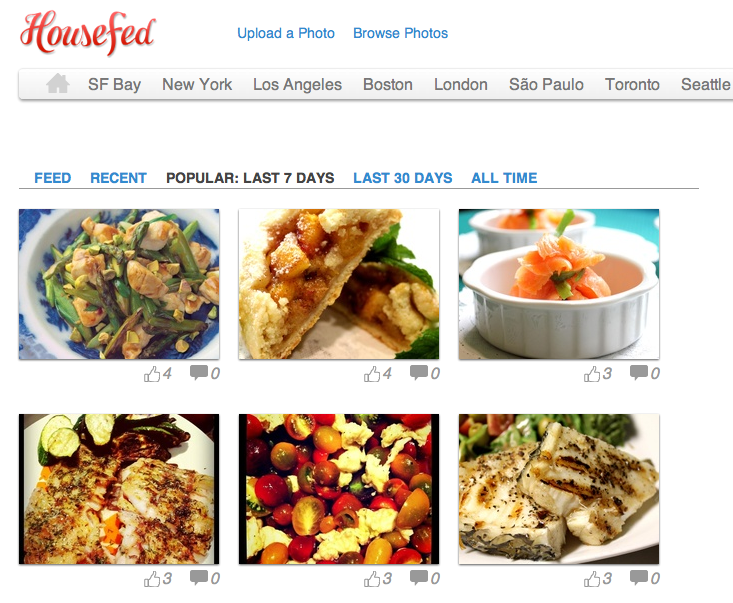Housefed: a community marketplace for home-cooked meals

I love photo-sharing sites, especially when they involve food.
Housefed isn't just about sharing pictures though; you can invite random people over and literally share your meal. Think AirBnb mixed with the home version of Foodspotting.
I got the opportunity to speak with Housefed's creator, Emile Petrone, and he offered insight into what he's building.

How did you come up with the idea for Housefed?
Petrone: The idea for Housefed came from watching too much Anthony Bourdain. After watching an episode, I realized - if I wanted to recreate that experience, it would be incredibly hard. I wouldn't have a fixer or someone locally that I could eat with to get a true sense for what is 'local food.' So I figured there should be a platform for people to find a home-cooked meal no matter where they are. That was the initial idea back in, I think, February, and today I'm finally launching meals so you can do that in the Bay Area.
Have you ever hosted a Housefed meal at your house?
This first meal on Thursday will be the first Housefed meal & my first one too.
What technologies have you used to build Housefed?
Housefed is built on Django/Python/ MySQL/ jQuery/ HTML5. I also use AWS S3 for storing & serving the media files.
Some interesting libraries I'm using - Sorl-thumbnail for displaying the images,and Socialregistration for the Facebook Connect. I am also using Git & South for version control and migrations.
What are your plans for a mobile version of the site?
What is the most exciting part about building a community from scratch?
The most exciting, and I think most daunting, thing about building a community is seeing how people use your site versus how you thought they would use it. After you get over the hump of people signing up, then it becomes a matter of , "Are they using the features I built? Why or why not? What is necessary and what isn't?"
There is a real difference between your vision, and what ends up working in real life. As the founder, I am really just one voice in a much bigger community. What I think is right, may not ultimately work for the community. I've learned a lot that way which is what makes it exciting.
What is the most delicious meal photo you've seen on Housefed?
With roughly 700 photos on Housefed, that is a tough question. There are a lot of great dessert photos, but I'd have to go with the pho - http://housefed.com/pic/188/ . Gotta love the pho.
You've been constantly changing and iterating Housefed as it evolves. What is the greatest lesson you've learned from creating a startup like this?
The one lesson I've learned in two startups - you must have a technical founder/co-founder. In college, I had a startup that got funding from my university to connect researchers across disciplines. With that company, I outsourced the development which, partially because of development costs, ran out of money. This time around I was going to do it differently. That is why I taught myself how to code - so I could build anything the moment I realized I needed it.
The constant iterations and daily pushes are the result of learning how to code. I think I have a pretty good sense for what the site needs, it's just a matter of being able to build that feature ASAP. With social websites, you really aren't doing any thing new to reinvent the wheel - just putting different parts together in a new configuration. If you can't do that for 0 or little money, then you are at a huge disadvantage.
The main thing that I can't reiterate enough: have a technical founder or cofounder. If you don't, you are dependent upon translating your idea to someone else, and waiting on them to build it. In that time, I've built the feature, gotten data from users, and am already working on the next iteration.